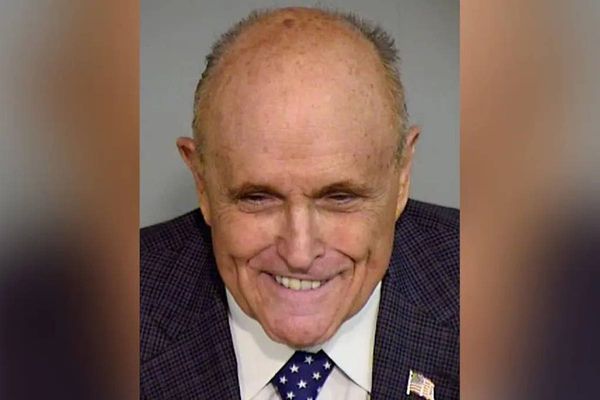
One of the most insidious threats to democracy is the idea that learning and intelligence are enemies of the people. It is fashionable for politicians to accuse experts of trying to hoodwink the public, to tell them that knowledge is a plot of the elites, situating the populist politician as their only true friend.
These are the arguments of the huckster, the carpetbagger, the autocrat and the fascist. Reduce all argument to slogans — and when the promise of making a nation great collapses, it is easy to blame the elites.
Populations have a responsibility to resist this scaremongering.
The debate on the Indigenous Voice to Parliament is no different. The populists claim there is no information, that the debate is being run by uncaring elites and will racialise society.
Society used to respect experts, and in some cases we still do. Most of us prefer an electrician to Uncle Fred when we need to fix a shorting light switch in the bathroom. It is safer, and the expert comes with assurance and insurance.
Knowledge used to be like that. If we wanted to know about an illness, we went to a doctor; now too many assume the doctor wants to kill us and so we go and buy a crystal and hum in a tent.
The Aboriginal and Torres Strait Islander people who met to forge the Uluru Statement from the Heart were cultural experts. They didn’t always agree but they produced the most beautifully written peace document I have ever read, a piece of art as well as a robust statement of the national situation. And it was full of love.
Former prime minister Malcolm Turnbull rejected it before that day’s lunch sandwiches were cut. Who needs an expert?!
I can understand those who say we need treaty before constitutional recognition. Their argument has merit, but I can’t see that it is in Black interests to knock back the first offer to be included in the foundation statement simply because you object to the position of agenda items. And if being part of the colonial constitution is offensive, then there’s always the opportunity to go back to being fauna and flora.

Megan Davis — a Cobble Cobble woman of the Barunggam Nation and a renowned constitutional lawyer and public law expert — has written a document for Quarterly Essay that covers the whole ground of colonial assumptions and Indigenous dispossession. She is an expert — not the expert, but an authoritative voice. If you don’t want to listen to people who have devoted their lives to social justice for their people, then I think you should buy a crystal and get Uncle Fred to fix your electrical problems with fencing wire and gaffer tape.
The issues are complicated. Too complicated to leave to politicians who can’t, or won’t, read.
Davis very calmly paints the picture of Aboriginal disadvantage and the origins of that disadvantage. Importantly, however, she emphasises that Aboriginal and Torres Strait Islander people never ceded the land and the British never followed the terms of occupation as outlined by their sovereign.
Aboriginal people believed in realpolitik and continued to interact with the invader in order to set out their own sovereignty and claims of attachment to the land. She quotes Fred Maynard and William Cooper, both underrated Aboriginal advocates.
Bret Walker SC has said of this situation: “The basis of settlement of Australia is and always has been, ultimately, the exertion of force by and on behalf of the British arrivals. They did not ask permission to settle. No one consented, no one ceded.”
The legal authority is completely absent. And in its absence, Australia was able to build, fig leaf by fig leaf, a myth of legitimacy. In this embarrassing nakedness, the few Australian attempts at some adjustment of this situation asked everything of the people and nothing of the state.
Davis discusses Welcomes to Country and reconciliation action plans in this same light: they limit themselves to words without a requirement for action, ideal in a country where the colony has no valid authority over the land. She points out the desperation of previous governments to settle for an acknowledgment without any obligation to change the constitution of institutionalised racism that rises out of precisely this legal vacuum.
The role of adversarial politics is also discussed and its opposite, reasoned dialogue, is advocated.
Reason is exactly what the Uluru Statement suggests. It is the most gracious and modest statement. It opens the way for a relationship that white and Black have never had in this country, suggesting a way of us living together in some kind of justice and harmony. The avoidance of this opportunity reveals a cynical view of humanity and the role of justice.
There are any number of books providing a welter of information on constitutional recognition, but Davis’ essay is a generous, coherent and thorough summary. Available to anyone who honestly wants the information.







